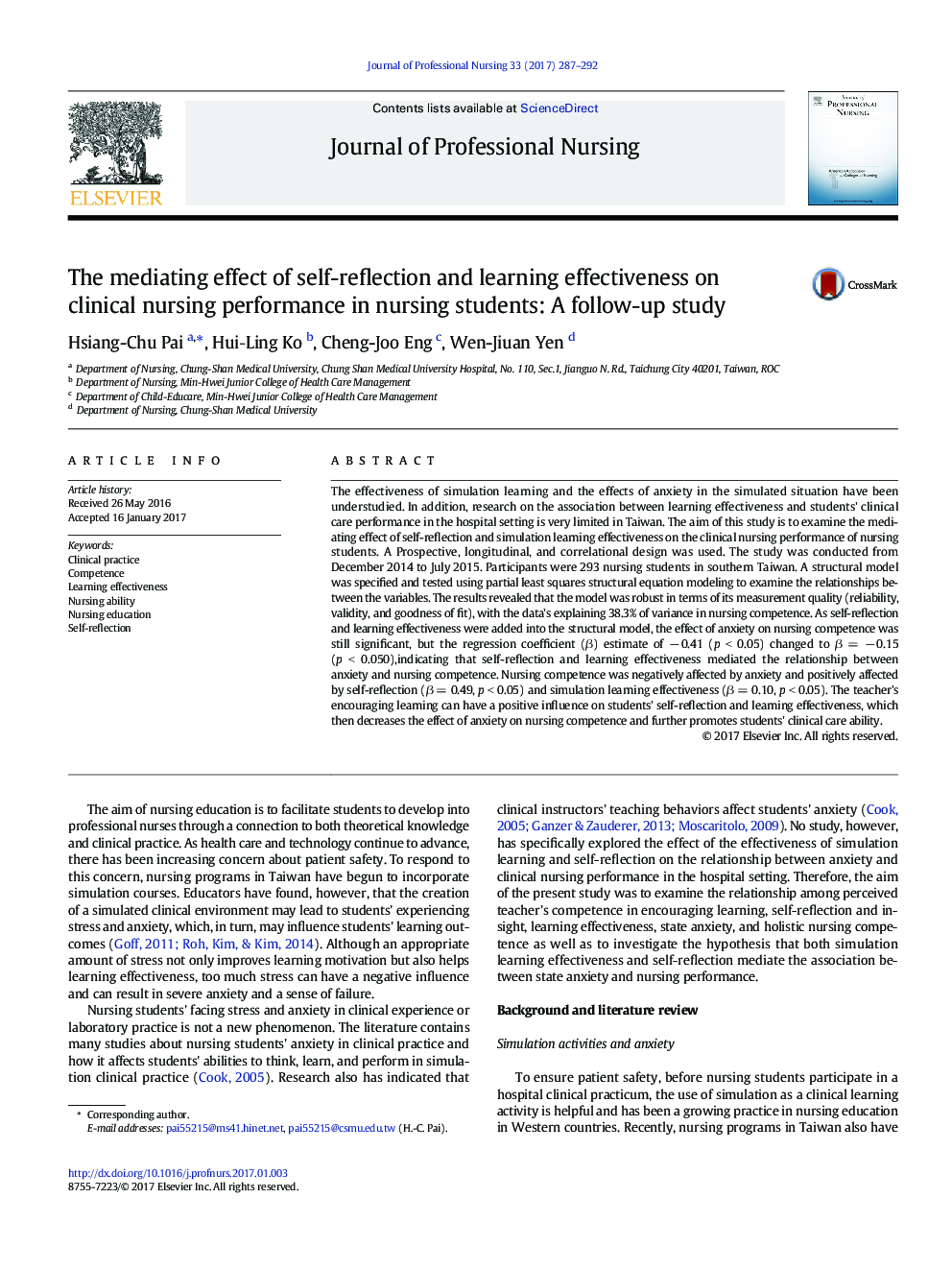| کد مقاله | کد نشریه | سال انتشار | مقاله انگلیسی | نسخه تمام متن |
|---|---|---|---|---|
| 5570509 | 1403754 | 2017 | 6 صفحه PDF | دانلود رایگان |
- A simulation environment can create a realistic clinical setting in which students encounter stress that can be appraised as threatening and difficult to manage, thereby causing anxiety.
- However, simulation learning effectiveness as well as self-reflection and insight can serve as protective factors to strengthen students' lines of defense and to decrease the influence of anxiety on nursing competence.
- The most significant concern for nursing educators is the effect of teacher's competence in encouraging learning on learning effectiveness and self-reflection and insight.
- Notably, nursing educators can play a crucial role in decreasing anxiety as well as enhancing learning effectiveness and self-reflection and insight and, as a result, improving nursing competence.
The effectiveness of simulation learning and the effects of anxiety in the simulated situation have been understudied. In addition, research on the association between learning effectiveness and students' clinical care performance in the hospital setting is very limited in Taiwan. The aim of this study is to examine the mediating effect of self-reflection and simulation learning effectiveness on the clinical nursing performance of nursing students. A Prospective, longitudinal, and correlational design was used. The study was conducted from December 2014 to July 2015. Participants were 293 nursing students in southern Taiwan. A structural model was specified and tested using partial least squares structural equation modeling to examine the relationships between the variables. The results revealed that the model was robust in terms of its measurement quality (reliability, validity, and goodness of fit), with the data's explaining 38.3% of variance in nursing competence. As self-reflection and learning effectiveness were added into the structural model, the effect of anxiety on nursing competence was still significant, but the regression coefficient (β) estimate of â 0.41 (p < 0.05) changed to β = â 0.15 (p < 0.050),indicating that self-reflection and learning effectiveness mediated the relationship between anxiety and nursing competence. Nursing competence was negatively affected by anxiety and positively affected by self-reflection (β = 0.49, p < 0.05) and simulation learning effectiveness (β = 0.10, p < 0.05). The teacher's encouraging learning can have a positive influence on students' self-reflection and learning effectiveness, which then decreases the effect of anxiety on nursing competence and further promotes students' clinical care ability.
Journal: Journal of Professional Nursing - Volume 33, Issue 4, JulyâAugust 2017, Pages 287-292
